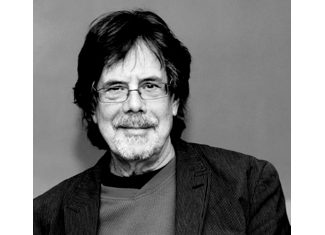Peter Werbe : June 2017
Photo by Dawn Henry
A FRIEND JUST RETURNED FROM A TRIP TO BERKELEY (California, not our neighbors to the northwest of us), where he reported that walking down the city’s famed and freaky Shattuck Ave., one smells the pungent odor of marijuana constantly.
Our city of Berkley voted to decriminalize weed in a 2014 city referendum, as has Ferndale, Oak Park, even upscale Pleasant Ridge, plus 12 other Michigan cities. The momentum seems so strong that High Times, a cannabis legalization publication, rates our state as one most likely to soon decriminalize marijuana. Vermont’s governor recently vetoed a legalization bill.
However, don’t light up a fatty on any of the Oakland county cities which voted to permit recreational use of the herb. Even though the state passed the Medical Marijuana Act in 2008, local law enforcement officials in Oakland County will not allow even marijuana medicinal dispensaries to operate, and you risk felony prosecution for possession if you don’t have a medical card permitting it.
 However, Detroit, which voted to allow usage, has over 250 marijuana dispensaries, many of which dot Eight Mile Rd., conveniently close to a suburban clientele.
However, Detroit, which voted to allow usage, has over 250 marijuana dispensaries, many of which dot Eight Mile Rd., conveniently close to a suburban clientele.
Nine Mile Rd. and Woodward isn’t Shattuck Ave. However, it might be soon. MI Legalize, the group whose efforts to get the legalization question on the 2016 ballot was thwarted by a technicality, has an organizing campaign aimed at next year’s election.
Even though 44 states allow medical marijuana, and several permit recreational use, the rub is that it remains illegal at the federal level under the Controlled Substances Act which classifies it with drugs like heroin. The Feds deny that marijuana is a medicine and the courts agree.
In a 2005 ruling, the US Supreme Court affirmed that the federal government has the constitutional authority to prohibit marijuana for all purposes.
Their decision wasn’t based on the right-wing, Puritanical desire to punish pleasure which is now being threatened by US Attorney General Jefferson Beauregard Sessions, who is demanding increased enforcement of anti-drug laws. Rather, the court recognized the sovereignty of federal law over state or city statutes.
They reason that without that dominance, the state of Alabama could re-institute segregation or Ferndale could declare a minimum wage of $3.75 an hour. After all, it was the unwillingness of Northern states like
Michigan to enforce the Constitution’s guarantee of slavery and the 1850 Fugitive Slave Act that led the South to rebel. It is much like the Sanctuary City movement of today which pits federal law against a city’s refusal to cooperate with immigration police.
But let’s go back to the Dylan song. What are the consequences of widespread and constant marijuana usage on a society and on the individual?
John Sinclair, 1960s MC5 manager and White Panther Party founder, who suffered two prison stints for possession of reefer, saw great political potential for getting high. In 1971, he wrote: “The Marijuana Revolution is just part of the world-wide revolution being carried out by peoples of the Earth who refuse to put up any longer with the exploitation, greed and oppression of the Euro-Amerikan ownership-class.”
Those were heady days and although Sinclair’s words may seem a lot more optimistic regarding the possibility of social change than what occurred, he was onto something. Getting high was part of the rebellion of the era, it was an intoxicant that brought pleasure and mental exploration without the deadening and toxic effect of the mainstream’s favorite mind altering substance—alcohol. Marijuana was part of a process that allowed the generation of the 1960s to shed the rigid strictures and demands of conventional society.
However, as weed and other drug use became more prevalent, state and federal governments realized the economic potential for harsh enforcement and the increase and militarization of their police apparatuses. Thus was born the Prison/Industrial Complex alongside its Military big brother. It’s estimated that $1 trillion has been spent on the so-called War on Drugs This constitutes a massive wealth transfer of our income in taxes to the government to stop people (often us) from altering their consciousness, and to create clients for the Prison/Industrial Complex. Or, as Sinclair once said, “to stop people from smoking flowers.”
We’re moving towards legalization, but what will result from a universal Shattuck Ave.?
Many people see decriminalization like Sinclair did—a force for liberating one’s mind which in turn would liberate society. In fiction, however, the result is often portrayed differently. In Aldous Huxley’s 1933 Brave New World, soma, a “euphoric, narcotic, pleasantly hallucinant” substance is doled out to “Delta workers,” as a method of controlling rebellious impulses.
George Lucas’s 1971 directorial debut film, THX1138, is set in a dystopian 25th Century world, where use of mind-altering drugs is mandatory to enforce compliance.
Whether marijuana can be part of a process of liberation or used by the government as a mind-numbing substance that enforces the status quo isn’t clear. Let’s just be aware of the consequences of what we wish for. But, legalize it!
The MI Legalize campaign can be reached at facebook.com/MiLegalize
Peter Werbe is a member of Fifth Estate magazine’s editorial collective www.FifthEstate.org. On Saturday, July 15, he will moderate a panel at the Charles H. Wright Museum of African-American History which will discuss the legacy of the White Panther Party. Panelists will include Atty. Buck Davis, Geni Parker, Pun Plamondon, Leni Sinclair, and John Sinclair. Admission is free. TheWright.org.



